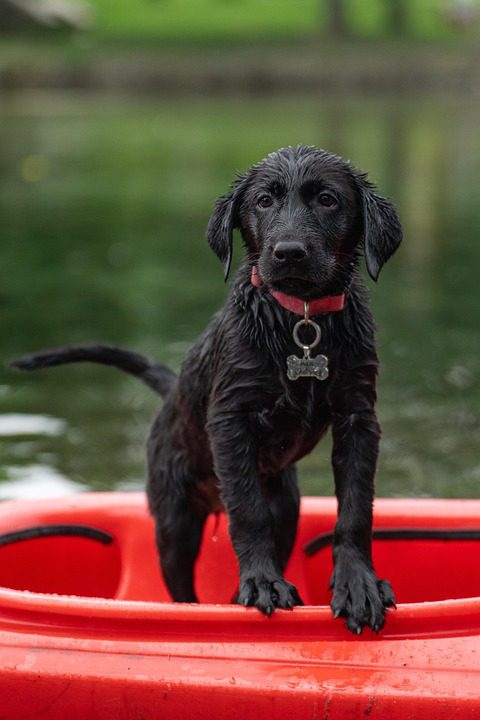Introduction to a lifelong friendship starts with the proper training of your puppy. The early stages of a puppy’s life are crucial for their development into a well-behaved and obedient dog. In this article, we will guide you through a comprehensive 16-week schedule for puppy training, covering essential topics such as housebreaking, socialization, and basic obedience commands. Whether you’re a first-time dog owner or an experienced breeder, this article will provide you with valuable insights and actionable tips to raise a well-behaved dog.
Understanding the Importance of Puppy Training
Puppy training is not just about teaching your dog to obey commands; it’s about building a strong bond between you and your dog. A well-trained dog is more likely to be well-behaved, confident, and less prone to behavioral problems. However, for a puppy to grow into a well-behaved dog, training must begin early and be consistent. For instance, a study by the American Kennel Club found that puppies that receive early training are more likely to develop good behavior and fewer behavioral problems.
Setting Up for Success
Before you start training your puppy, it’s essential to set up your home and environment for success. This includes:
-
- Puppy-proofing your home: Remove any hazardous materials, secure toxic substances, and block off areas you don’t want your puppy to access.
-
- Establishing a routine: Create a schedule for feeding, exercise, and playtime to provide your puppy with a sense of stability and predictability.
-
- Choosing the right equipment: Invest in a comfortable crate, a suitable leash, and high-quality toys that are safe and durable.
Week 1-4: Housebreaking and Basic Socialization
The first four weeks of a puppy’s life are critical for housebreaking and socialization. During this period:
-
- Establish a housebreaking routine: Take your puppy outside to the same spot each time to create a connection between the location and the act of eliminating.
-
- Introduce basic socialization: Start socializing your puppy with people, other animals, and new environments to help them develop good social skills.
Tips for Housebreaking
-
- Watch for signs: Puppies will often sniff and circle before they eliminate. If you see your puppy exhibiting these behaviors, quickly take them to the designated potty area.
-
- Praise and reward: When your puppy eliminates in the correct location, praise them and reward with treats and affection.
-
- Be patient: Housebreaking can be a slow process, so be patient and don’t punish your puppy for accidents.
Week 5-8: Advanced Socialization and Basic Obedience
As your puppy grows and becomes more confident, it’s essential to continue socialization and introduce basic obedience commands. During this period:
-
- Introduce advanced socialization: Expose your puppy to new environments, such as parks, pet stores, and friend’s homes, to continue developing their social skills.
-
- Teach basic obedience commands: Start with simple commands like “sit,” “stay,” and “come” to lay the foundation for more advanced training.
Basic Obedience Commands
-
- Sit: Hold a treat above your puppy’s head and move it backwards towards their tail. As they follow the treat with their nose, their bottom will lower into a sitting position.
-
- Stay: Start by having your puppy sit, then take a few steps back and say “stay.” Gradually increase the distance and time you’re away from your puppy.
-
- Come: Call your puppy by their name and say “come” when you’re in a controlled environment. Reward them with treats and affection when they respond.
Week 9-12: Advanced Training and Behavior Management
As your puppy enters adolescence, they may start to test boundaries and exhibit unwanted behaviors. During this period:
-
- Introduce advanced training: Build on basic obedience commands by adding distractions, distance, and duration.
-
- Manage unwanted behaviors: Address common issues like chewing, barking, and jumping up by providing appropriate alternatives and consistent training.
Managing Unwanted Behaviors
-
- Chewing: Provide your puppy with a variety of chew toys and rotate them regularly to keep them interesting. Supervise your puppy at all times to catch and redirect unwanted chewing behaviors.
-
- Barking: Identify the cause of the barking and address it accordingly. If your puppy is barking due to boredom, provide more exercise and mental stimulation.
-
- Jumping up: Ignore your puppy when they jump up and reward them when they sit or exhibit calm behavior.
Week 13-16: Finalizing Training and Preparing for Adulthood
The final four weeks of training are crucial for solidifying what your puppy has learned and preparing them for adulthood. During this period:
-
- Refine advanced training: Continue to challenge your puppy with complex training exercises and real-life scenarios.
-
- Introduce adult responsibilities: Gradually increase your puppy’s independence and introduce adult responsibilities, such as walking on a leash without pulling.
Preparing for Adulthood
-
- Increase independence: Gradually give your puppy more freedom and independence, such as allowing them to roam freely in the house or yard.
-
- Introduce adult routines: Establish a routine that includes regular exercise, training, and socialization to help your puppy transition into adulthood.
Conclusion
Puppy training is a journey that requires patience, consistency, and dedication. By following this comprehensive 16-week schedule, you’ll be well on your way to raising a well-behaved and obedient dog. Remember to stay calm, be patient, and always reward good behavior. If you’re struggling with any aspect of puppy training, consult with a professional dog trainer or your veterinarian for guidance. With time, effort, and the right training, you can develop a strong bond with your puppy and enjoy a lifelong friendship.




